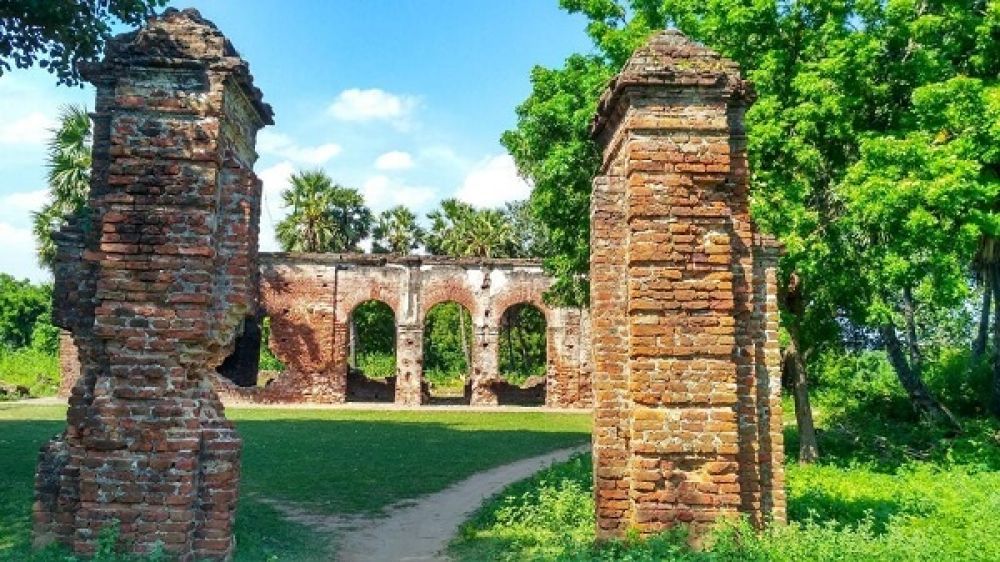

Nestled on the outskirts of present-day Puducherry (formerly known as Pondicherry) on the southeastern coast of India, Arikamedu is a fascinating archaeological site that has captured the interest of historians and tourists alike. Known for its past as an ancient Roman trade center, Arikamedu has played a significant role in establishing the historical significance of Indo-Roman trade relations.
The history of Arikamedu dates back to approximately 2nd century BCE, persisting up until the 8th century CE. It served as a bustling port town, with its peak of activity between the 1st century BCE and 2nd century CE. Archaeological excavations have unearthed a wealth of artefacts, including Roman coins, amphorae (Roman jars typically used for transporting wine or olive oil), and distinctive pottery with Roman and Mediterranean influences, which are testament to the extensive trade that took place with the Roman Empire.
Although Arikamedu's significance has been known locally for centuries, it was first brought to international attention in the 1940s by the French archaeologist Mortimer Wheeler. Since this discovery, Arikamedu has seen a slow but steady growth in tourism. It was the historical and archaeological importance of the site that initially drew attention from academics and those interested in the ancient world.
Over the years, the Government of India along with the Archaeological Survey of India (ASI) have taken steps to preserve this site and increase public interest. The establishment of the Site Museum, which houses many of the artefacts found during various excavations, has made Arikamedu more accessible and informative for visitors.
In recent years, there has been a trend of increasing ecotourism and cultural tourism in India, with places like Arikamedu gaining more popularity among tourists who are eager to learn about India's ancient cultures and heritage. Specialized cultural tours often include Arikamedu as a significant stop, offering tourists a glimpse into the past through curated experiences that blend history with storytelling.
The local government of Puducherry has made concerted efforts to promote Arikamedu as a heritage site. There are plans to enhance visitor facilities and interpretative elements on-site to transform Arikamedu into a must-visit destination for historians, archaeologists, and tourists interested in ancient history.
Today, visitors can explore the remaining ruins, which include part of the ancient port's wharf and mission house of Jesuit Fathers along with the museum. A visit to Arikamedu is usually combined with the broader experience of Puducherry, which is noted for its French colonial influence, vibrant cultural scene, and scenic beaches.
Despite the restrictions faced in the conservation and excavation efforts due to its status as a protected heritage site, Arikamedu continues to be a place of historical intrigue and a testament to India's rich and diverse past.
Arikamedu is a treasure not just for Puducherry or India, but for the world, as it provides an astonishing insight into the maritime trade history of ancient civilizations. Its charm and historical weight continue to educate and fascinate those who visit, ensuring its place as a pivotal destination for history enthusiasts and cultural explorers around the globe.